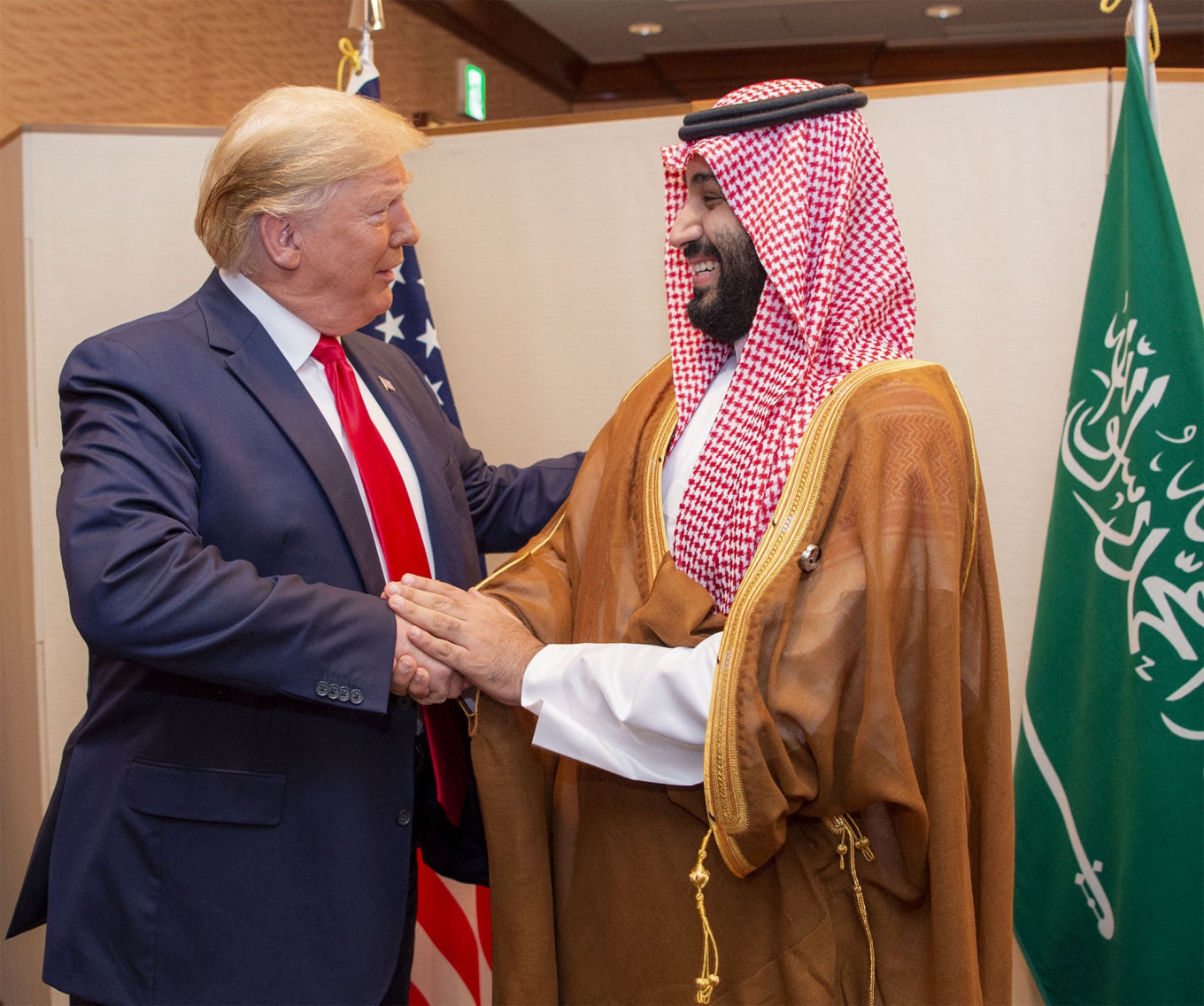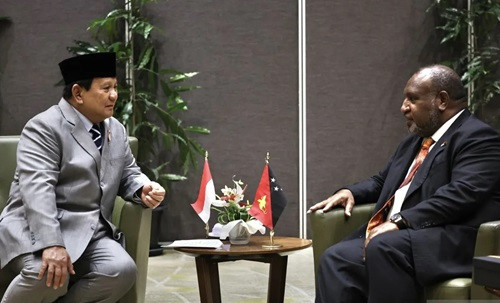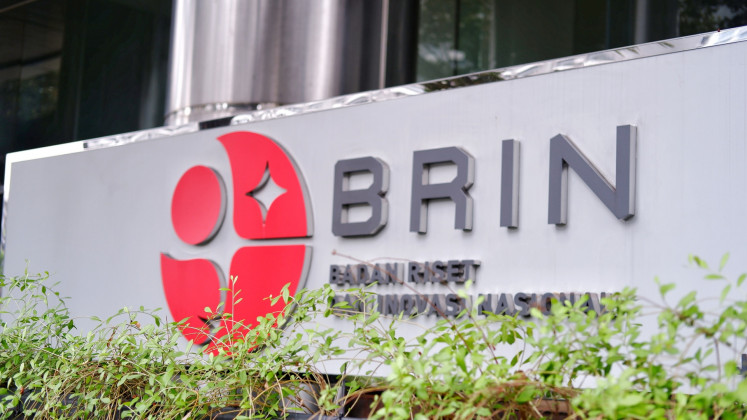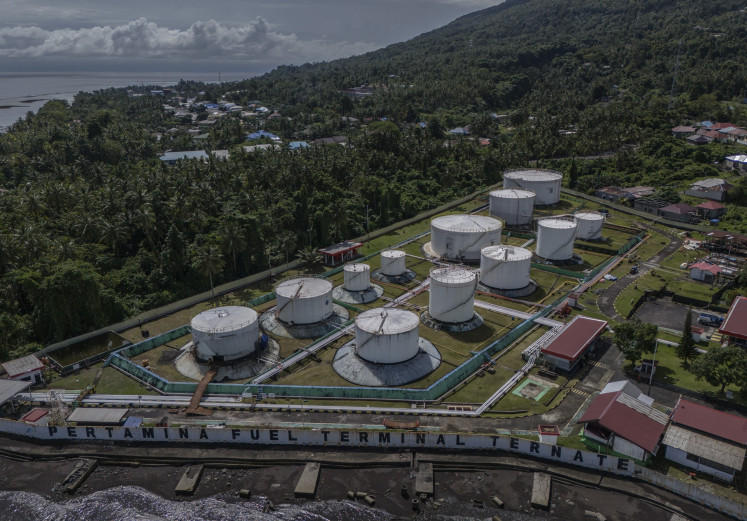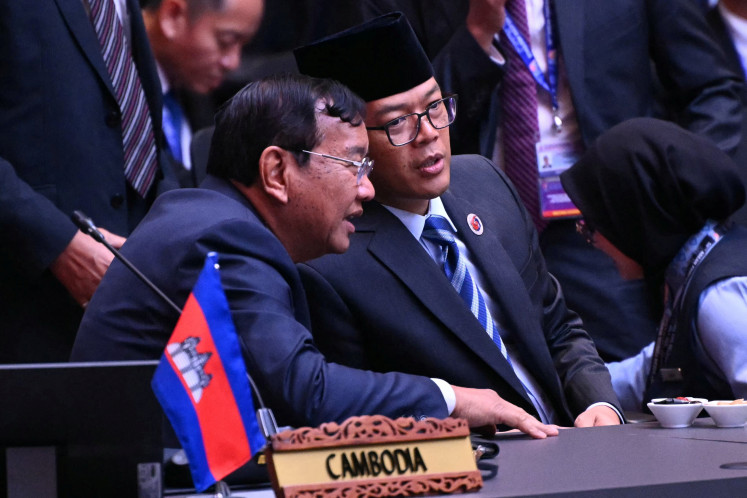Popular Reads
Top Results
Can't find what you're looking for?
View all search resultsPopular Reads
Top Results
Can't find what you're looking for?
View all search resultsSaudi Arabia’s rise signals decline of Europe’s geopolitical centrality
Riyadh has been emerging as a neutral ground for mediating geopolitical issues in recent years and Trump’s return to the White House has opened other opportunities as a player in global diplomacy, though its broader strategy is still firmly rooted in the Gulf, with a foothold in the Global South.
Change text size
Gift Premium Articles
to Anyone
U
nited States President Donald Trump’s preference for Saudi Arabia over traditional European venues like Geneva, Oslo, Paris and London for the Ukraine peace talks serves both symbolic and strategic purposes.
It signals a shift away from Europe’s centrality in diplomacy and fits well with Trump’s broader policy of bilateral, pragmatic diplomacy that prioritizes economic and geopolitical gains. The US-Russia discussions in Saudi Arabia also indicate Trump’s strategic use of Saudi Arabia to secure swift diplomatic wins, furthering his domestic and international standing.
Trump’s choice of Riyadh for the Ukraine peace talks also shows that Saudi Arabia has strategically positioned itself as a neutral intermediary, leveraging its strong relations with global powers including the US, Russia, China and European nations.
However, this is not the first time Saudi Arabia has played such a role.
For instance, the Jeddah peace summit in August 2023 demonstrated its ambition to actively mediate rather than merely host. Attended by representatives from over 40 countries, the summit aimed to reinforce Ukraine’s territorial integrity and secure broader international support for Kyiv’s peace conditions, despite not yielding immediately tangible outcomes.
Riyadh’s successful facilitation of critical prisoner exchanges between Russia, Ukraine and the US further illustrates its growing diplomatic capacity and influence.
Historically, Saudi Arabia acted as a diplomatic mediator in significant regional conflicts. It played a crucial role in the 1989 Taif Agreement that helped end Lebanon’s civil war, and actively mediated disputes within the Gulf Cooperation Council (GCC) and the broader Middle East.
These past experiences have added to its credibility as a peace mediator.
For a brief period, the US-Saudi partnership weakened as US reliance on Saudi oil declined and Riyadh questioned American security commitments.
Under Crown Prince Mohammed bin Salman (MBS), Saudi Arabia maintained its ties with the US while deepening relations with China and Russia, notably ignoring US requests to boost oil production following the Ukraine invasion and collaborating with Moscow through OPEC+.
The Israel-Hamas war in 2023-2024 complicated Saudi-Israeli normalization efforts, though Riyadh remained open to the deal. Saudi Arabia also positioned itself as a neutral mediator in Ukraine, while strengthening its economic and technological ties with China.
Meanwhile, Washington sought to curb Saudi-China cooperation by offering enhanced security guarantees, including nuclear energy and defense commitments. However, Riyadh continued to hedge, maintaining US security ties while expanding its global influence.
This delicate balance has persisted amid shifting geopolitical interests.
Trump’s decision to engage with Riyadh aligns with his pragmatic, results-driven, diplomatic approach. His affinity for Saudi Arabia dates back to his first term when his inaugural foreign visit was to Riyadh, marking a reset in US-Saudi relations after strained ties during the Obama era.
His personal and business connections with Saudi Arabia, bolstered by substantial Saudi investments in his enterprises including a reported US$600 billion pledge, further cemented Riyadh as his preferred diplomatic hub.
Saudi Arabia’s emergence as a diplomatic neutral ground has significantly advanced its geopolitical standing.
Russian President Vladimir Putin explicitly recognized Riyadh as a good partner and a comfortable and credible mediator, citing strong relations with Saudi Arabia.
The European Union, traditionally central in diplomatic negotiations, is experiencing reduced influence in global matters, reflecting broader skepticism about Europe’s geopolitical relevance.
China’s active participation in Saudi-hosted negotiations also demonstrates Riyadh’s adept balancing act among global powers, challenging Moscow’s narrative of a cohesive Sino-Russian alliance.
For the US, Saudi Arabia remains strategically critical, despite some frictions over human rights and oil policies. Trump’s return to office has evidently revitalized US-Saudi relations, aligning mutual interests in energy security, regional stability and countering shared threats, such as Iran.
Meanwhile, Saudi Arabia clarified that it would not normalize ties with Israel without an independent Palestinian state, rejecting Trump’s claim that Riyadh had dropped this demand. In response to Trump’s remarks alongside Israeli Prime Minister Benjamin Netanyahu, the Saudi Ministry of Foreign Affairs stated that the kingdom’s position remained “firm and unwavering”.
The role of MBS has been significant in advancing Saudi Arabia’s diplomatic image. His personal and business networks have cultivated close relationships with key leaders like Trump and Putin, placing Riyadh at the center of major global dialogues and expressively enhancing its international prestige and soft power.
MBS’s extensive economic engagements, including substantial US investments, infrastructure and technology partnerships with China and close oil production coordination with Russia, have bolstered Saudi Arabia’s diplomatic relevance, aligning with his Vision 2030 to diversify the economy beyond oil.
Other GCC countries, such as the United Arab Emirates, Qatar and Kuwait, actively support Saudi Arabia’s diplomatic initiatives. This collective endorsement has bolstered Saudi Arabia’s credibility and regional leadership.
The outcome of the US-Russia peace talks in Riyadh is expected to lay the groundwork for ending the Ukraine conflict. Initial agreements from the talks include restoring diplomatic staffing at embassies, forming a team dedicated to supporting peace negotiations and exploring increased economic cooperation.
Although Kyiv expressed concerns about being initially excluded, Ukraine’s eventual involvement remains critical for long-term peace sustainability. Trump’s pragmatic approach, leveraging Saudi Arabia’s mediation capabilities, could potentially help address the war’s pressing humanitarian and economic issues, marking a notable foreign policy success distinct from previous administrations.
Observers often feel that Saudi Arabia has been expanding its diplomatic reach beyond the US, strengthening ties with China, Russia, BRICS and the Shanghai Cooperation Organisation, while positioning itself as a regional mediator.
With Trump’s return to power, Saudi Arabia is finding new opportunities to recalibrate ties with the US, but its broader strategy remains focused on strategic hedging and asserting leadership in the Global South.
By fostering a nonpartisan approach and balancing relations with major powers, Riyadh seeks greater autonomy while maintaining its ambitions as a key global mediator.
---
The writer is director of the Inter University Centre for Social Science Research and Extension (IUCSSRE) at Mahatma Gandhi University (MGU). This article is published under a Creative Commons license.

